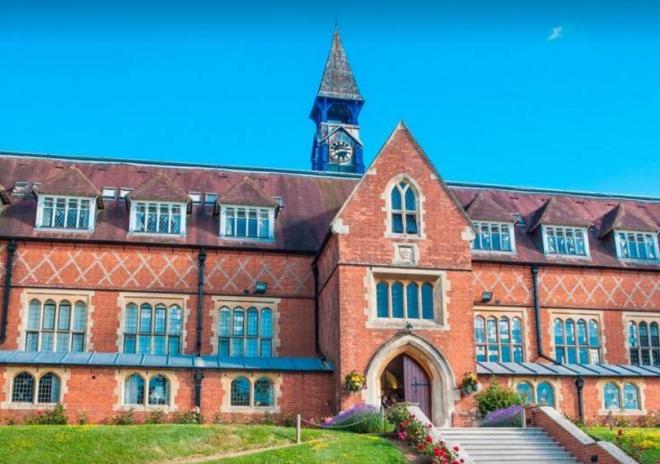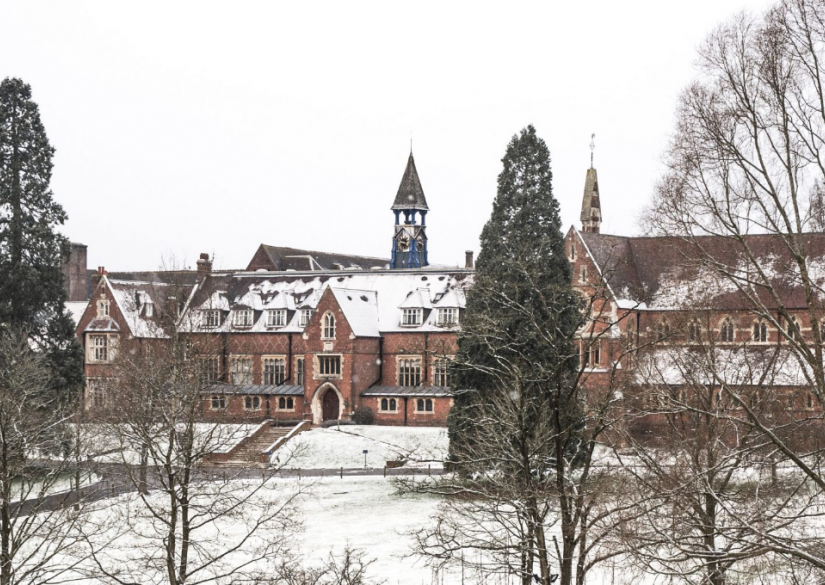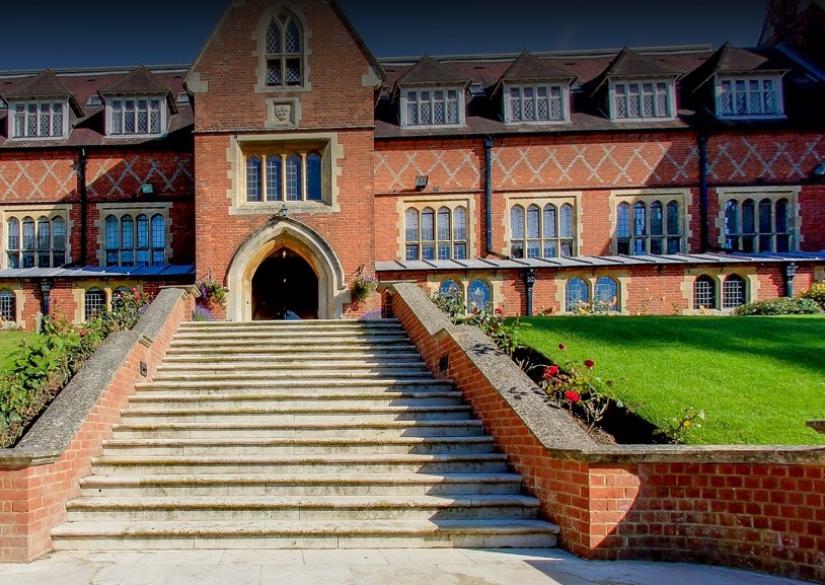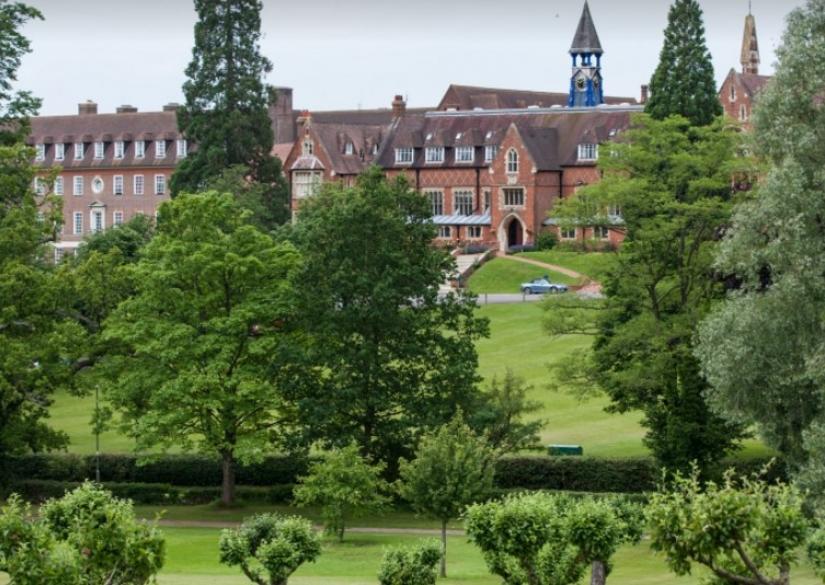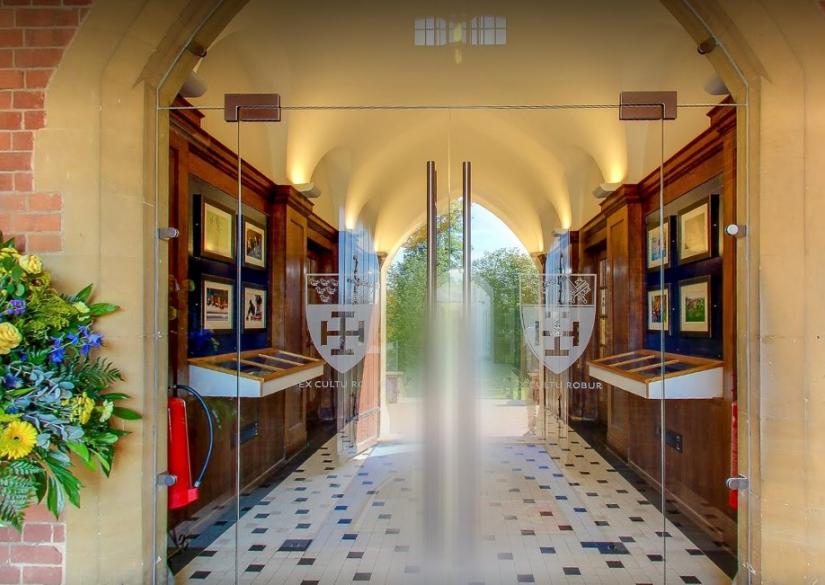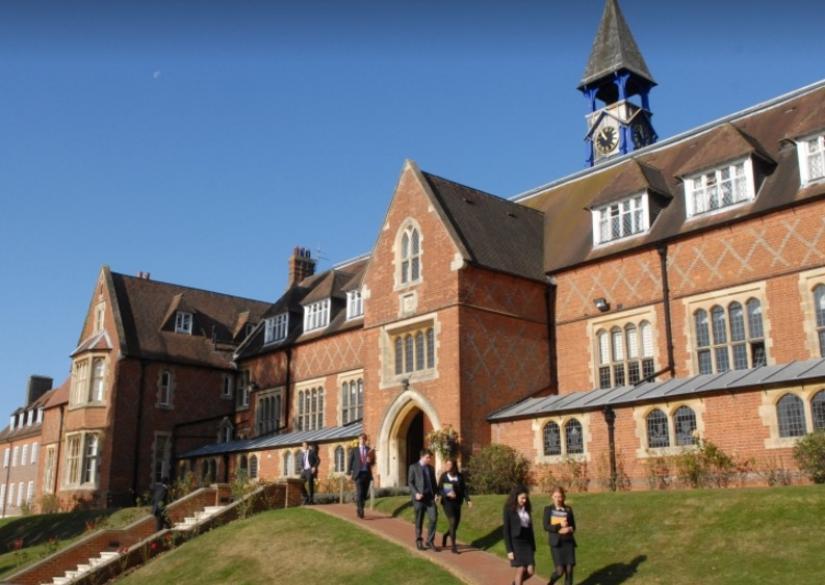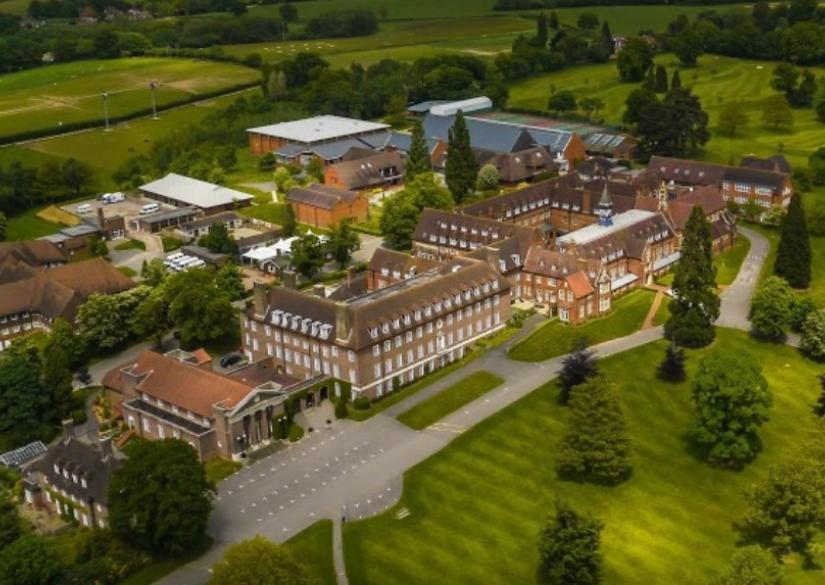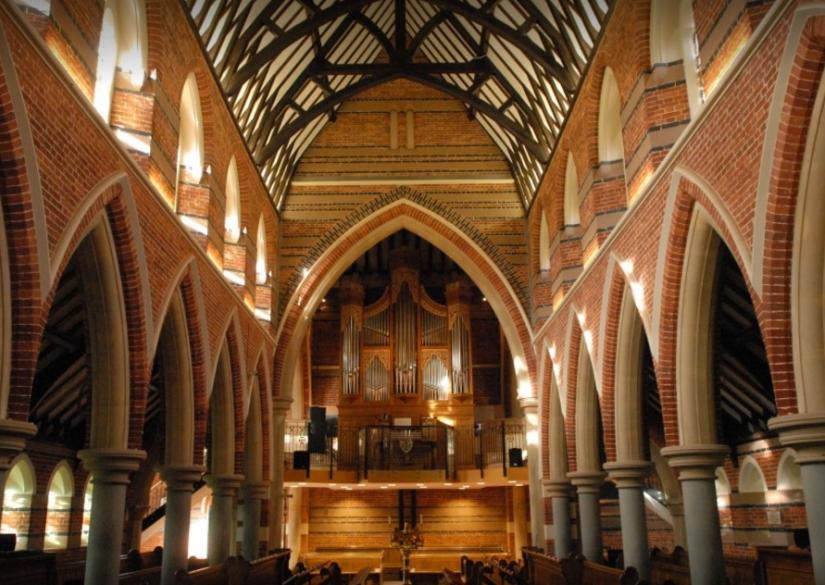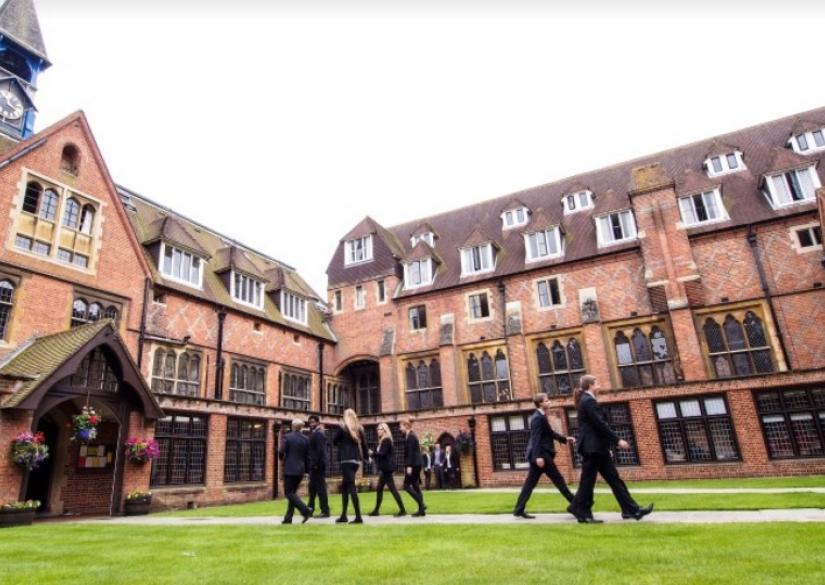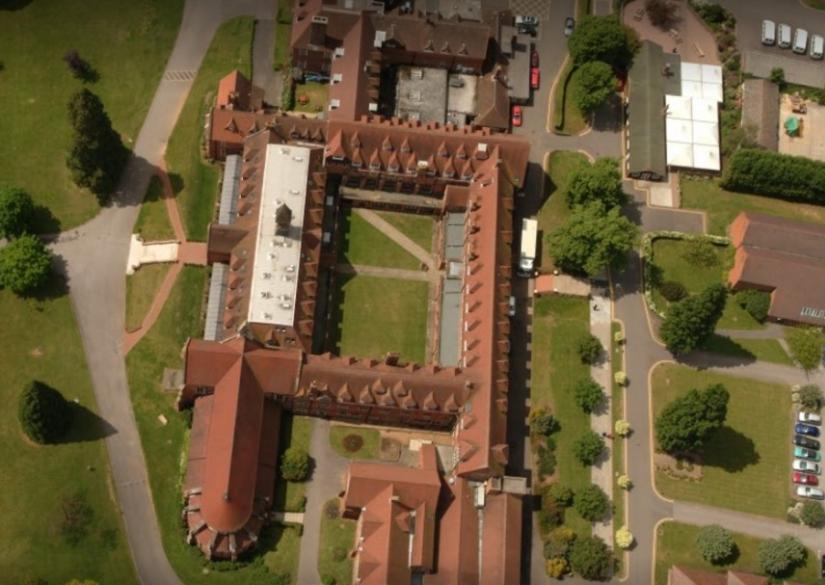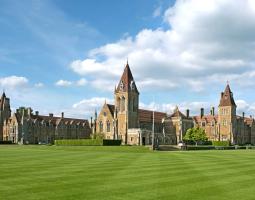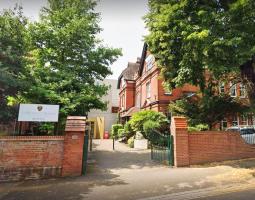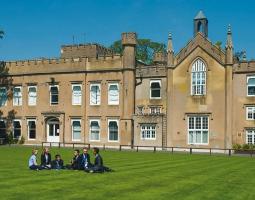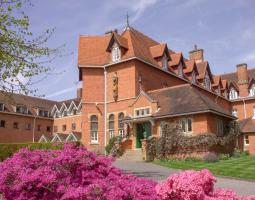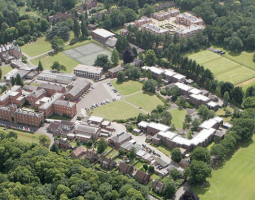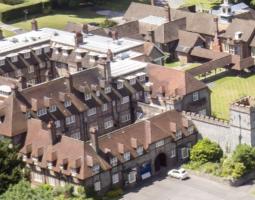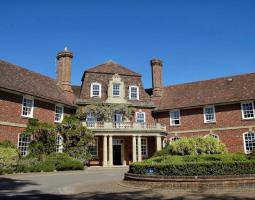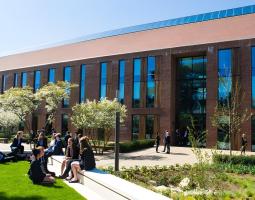Cranleigh School
In the process of preparing the material, we referenced the following sources: Wikipedia, INYOURAREA NEWS
Programs and prices, tuition fees in Cranleigh School
The course of incomplete secondary education includes studying both compulsory subjects (for example, mathematics and English), and optional, which students choose independently from a fairly extensive list:
- English
- English literature
- Physical Education and Sports
- Economy
- French
- Mathematics
- Business
- Spanish
- Music
- Fabrics and textiles
- Biology
- Chemistry
- Geography
- History
- Religious Studies
- The photo
- Art and Design
- Music
- Physics
- Personal and social development
- Technology and Design
- Drama and theatrical skill.
Two-year course for senior is designed for students who plan to enter a priority university. Students choose independently all subjects for the curriculum (3-5 directions): at a choice it is recommended to consider not only personal interests and propensities, but also requirements of the future specialty and faculty. Upon successful completion of the course and obtaining high scores on examinations (and exams are surrendered in all selected subjects), the student may not pass the entrance examinations - almost all British universities adhere to this policy.
Items for study can be selected from the following extensive and varied list:
- English
- French
- Spanish
- Economy
- The photo
- Business
- Fabrics and textiles, art of cutting and modeling
- Biology
- Chemistry
- Political science
- History
- Physics
- Physical culture and sports
- Accounting
- Music
- Geography
- Mathematics
- Art
- Dramatic and theatrical mastery.
Description of Cranleigh School
- Location: Cranly, Surrey, United Kingdom
- Students age: 7 to 18 years
- Total number of students: 900 people
- Educational programs: middle classes (level KS3), GCSE, A-Level
- Type of accommodation: full board
- Type of studying: mixed.
Cranleigh School (Cranly School) has adopted a mixed form of studying: boys and girls from around the world can learn from the age of 7 to 18 years. Despite the fact that the official religion of the campus is Anglicanism (which is typical of Great Britain), the children of any confession and religion, regardless of their origin, social level, or nationality, are accepted into the school.
The British boarding school provides a full-time education, and the total number of students reaches 900 people. The campus is located in the cozy and picturesque village of Cranly (Surrey) - the distance to the center of London can be overcome in just an hour and a half. In fact Cranly is the suburb of the British capital.
Cranleigh School dates back to 1865: it was founded to educate the sons of the followers of the Anglican church, but soon enough boys from families of local nobility began to take it here, and coeducation was introduced relatively recently - only in 1999.
The main goal of the teachers here is to give each child the maximum freedom to develop personal skills and abilities, talents, to provide him with all conditions for this, to instill a strong and sustainable motivation for achieving high goals. This is a fairly prestigious, selective school: celebrities are often accepted here - for example, the new sports center was opened by Sir Richard Branson, and the new school residences are Baroness Greenfield. Many well-known and respected professionals and graduates: they work in the business and political sphere, become military, actors, scientists and politicians.
Cranleigh School is rightly proud of its infrastructure, which, even among perfectly equipped British pensions, stands out for its novelty and technical excellence. More recently, a new educational center with a value of more than 10 million pounds, a modern Fine Arts Center, a school church was renovated in 2009, and a new body was even installed on the campus. The innovations include a spacious music school, a professional recording studio and a school theater.
Among the most powerful and developed academic disciplines, one can note mathematics, economics, natural sciences, foreign languages and English. According to statistics for 2014, A-level examinations of 53% of students passed to the highest A *-A scores, and 78% of students received high scores from A * to B. Among the students who passed the GCSE exams in the UK, the highest scores A * -A received 65 % on the exam.
Extracurricular activities, facultative employment of children are also well developed. The campus has a riding arena and stables, and children can come to study with their horses to practice equestrian sport in their spare time. Very popular and traditional British sports, such as:
- Tennis;
- Lacrosse;
- Cricket;
- Hockey;
- Rugby;
- Netball;
- Athletics.
A lot of interesting will be found for themselves and creatively gifted children: they are waiting for music lessons, singing and playing musical instruments, a studio of fine arts.

What makes British schools special? Why are they chosen by parents from all over the world for their children?
Schools in the UK continue to be the gold standard of education and offer the highest quality teaching.
Accommodation, meals, prices
In addition to the day-long form of education, children are offered the opportunity to study at full board, with residence in campus for 7 days a week (boys and girls live separately). Experienced, qualified educators live with the children in the residences, who are always ready to help with the solution of various problems and issues, monitor the observance of cleanliness, discipline and order, the schedule of the day.
Subjects and sports
Activities Cranleigh School
Out-of-class activities and children's leisure are paid no less attention than the academic program: on campus there are many clubs on interests, communities and sections. Many popular destinations refer to sports and active rest - we will list only the most popular and developed ones:
- Swimming
- Lacrosse
- Football
- Hockey
- Athletics
- Gymnastics
- Rugby
- Tennis (large and table tennis)
- Horse riding
- General fitness
- Netball
- Cricket.
You can practice in a drama club, get carried away by music or photography, and various kinds of fine arts. Every student at Cranleigh School will find something to their liking!
Facilities and equipment at Cranleigh School
The infrastructure of the Cranleigh School fully meets strict modern requirements and standards. The campus has a fairly large area (80 hectares): There is a place for a separate Center of Fine Arts, its church, stables and an arena with horses. There is own theater, a large sports complex, two swimming pools (indoor and outdoor), music studios and a separate photo lab with functional various equipment.
Admission dates and extra charges
The price of the course does not include and is paid separately:
- Registration fee
- Deposit confirming the place on the course
- Compulsory contribution to school development
- Examination fees
- Tuition fee = cost per term
- Additional academic studies (optional)
- Additional excursions and entertainment (optional)
- Visa fees and services
- Consular fee (paid at the embassy)
- Roundtrip flights
- Round trip (calculated depending on the selected airport)
- Medical insurance
- Personal pocket expenses
- Guardianship (registration fee in the agency + guardian's job).
Extras:
- Registration fee (for a programme/course) 200 GBP
- Visa fees 100 GBP
Literature and references
Institution on the map
Residence permits, citizenship and other services
- Guardianship services during the studies
- Student supervision
Review about Cranleigh School
Recommendations on when to apply
| Language courses, schools and children's language camps | Primary and secondary education - private schools | Preparation programmes for entering universities - higher education | Higher education (after completing accredited programs A-level, IB, High School) - Bachelor, Master, MBA |
| - we recommend to apply 6-9 months before the start of the course (some camps and schools offer discounts for early booking or for lengthy study programs) - there are some very popular and high demand children's camps, where the applications need to be submitted 1 year in advance (in particular Switzerland , Great Britain , USA , Canada , Austria) | - we recommend to apply one year before the start of the training program, - some schools have a specific time frame (September-November - please specify an individual school) - some schools require tests in several stages (UKISET, internal tests of the school: English, mathematics, logics, subjects, interview, some require a personal visit) | - we recommend to apply one year before the start of the program, - for Foundation and Pathway programs, IELTS and TOEFL certificates are usually required, respectively | - recommended submission one year before the start of the program, - the deadline normally closes in January, for TOP HEIs and, as a rule, in March in other universities - for a bachelor, a Foundation or Pathway preparatory program a completed A-level, IB, High School + IELTS / TOEFL are required - for Masters you need a graduated higher education, in some cases you need a pre-Masters program - MBA requires completed higher education, work experience preferably at least 2-3 years, etc. |




